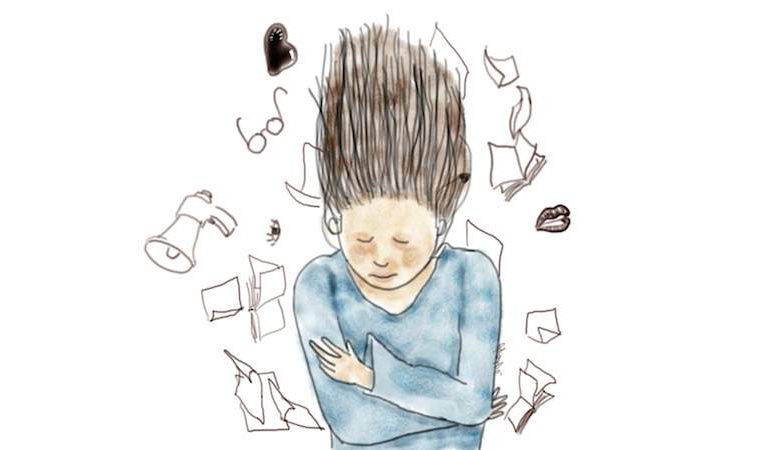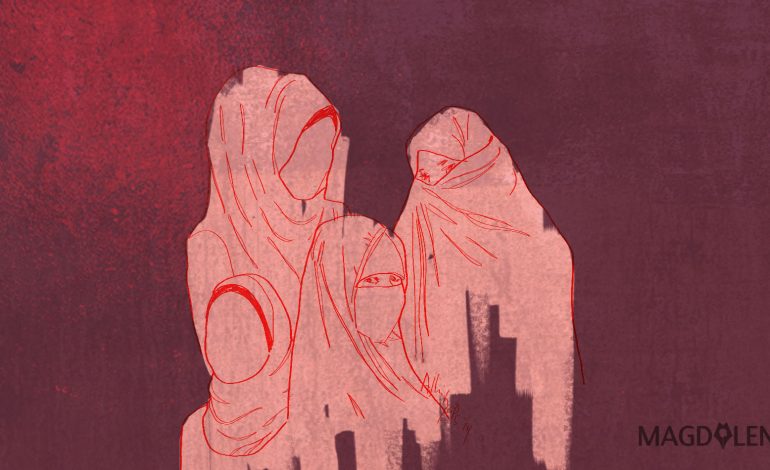An ‘ASK’ on Kartini Day

Today Indonesia celebrates one of its most illustrious heroines, Kartini, perhaps the country’s first intellectual feminist. If you don’t really know who she is, I suggest you read this piece, rather than going back to your history textbooks. Because for decades, Indonesia has celebrated this woman for all the wrong reasons. And one of the most obvious mistakes in celebrating Kartini Day, of course, is making a tradition for girls and women to wear kebaya or national costume on the day.
Don’t get me wrong, I think kebaya is pretty and elegant, and that traditional costumes must be preserved. But celebrating Kartini Day by wearing what she presumably wore more than 100 years ago – and she wore it not as a personal expression, but because that’s what women wore in those days – is like paying respect to Albert Einstein’s achievements by teasing your hair to a complete frizz, or commemorating the birth of Nelson Mandela by having a batik exhibition, because he was fond of batik. I mean, if people didn’t do this for those great men, why did they do it to Kartini?
It is an obvious reductionist way to put a woman in her place – thou shalt be judged by thy appearance. Which is sad. If she were alive, I do believe she would be dressed in a way that would allow her comfort and mobility, and kebaya is not the most comfortable and mobile gear.
Kartini was born 136 years ago today and died at 25 of complications from giving birth to her first child. Now, let’s talk about that for a moment to refresh your memory.
Kartini was married off at the age of 24, which was considered old for the Javanese nobility’s standard at the time, too old to marry well. Not only that, she was also the fourth wife of the regent of Rembang, Raden Adipati Joyodiningrat, who was 26 years older and who already had 12 children from all his three marriages.
The marriage dashed her hopes of accepting a scholarship to study abroad, but ironically, it gave her greater freedom to spread her feminist message at home, (with her husband’s approval of course). With the help of the Dutch government in 1903, she opened the first Indonesian primary school for native girls that did not discriminate on the basis of their social status. Set up inside her father’s home, the school had a Western-based curriculum. In short, Kartini envisioned a world – her world – in which girls and women attain empowerment and enlightenment through education.
Fast-forward to now, when girls have more access to school and women are relatively free to pursue a career (or a life they envision). There are still many other issues including social, legal, infrastructural and institutional that continue to hamper the fulfillment of gender equality in this country. But we should be relieved because at least the government is paying attention to these issues, right? Actually, not quite.
The Ministerial Gaffes
For over a decade now, we have had the Minister of Women Empowerment and Child Protection and at least one of them was good (Khofifah Indar Parawansa comes to mind). Not many women’s rights activists would say the same of the current minister Yohana Susana Yembise, however. In fact, it appears she has done more damage than good in such a short time since her appointment late last year.
Her last biggest gaffe was last month, during the 59th annual session of the Commission on the Status of Women (CSW 59) at the UN in New York, when Indonesia was identified as one of the countries that are hampering progress in attaining gender equality.
CSW is a global intergovernmental body dedicated to the promotion of gender equality and the empowerment of women. The Commission’s mandate includes taking a leading role in monitoring and reviewing progress and problems in the implementation of the Beijing Declaration and Platform for Action (BDPA), and in mainstreaming a gender perspective in UN activities. Every year it meets for two weeks to discuss progress and gaps in implementation of BDPA, as well as emerging issues that affect gender equality and the empowerment of women.
In its annual meeting last month some member countries could not agree on issues such as sexual reproductive health and rights (SRHR); sexual rights; Sexual Orientation, Gender Identity and Gender Expression (SOGIE); human rights of women and girls; and feminist groups. According to this blog, these countries, including – you guessed it – Indonesia, were trying to block negotiations, limiting the involvement of civil society organizations and feminist groups in formulating documents.
The Guardian further stated that Indonesia, along with Russia, the Holy See, Nicaragua and the Africa Group of countries have “tried to limit references in the text to human rights and to remove mention of the role feminist groups play in advancing gender equality.”
Indonesian women activists blame Minister Yohana’s lack of capacity in her role for this setback. Sulistyani, who is a member of the Sekretariat Nasional Jokowi Perempuan, a women’s volunteer support organization for President Joko Widodo, said Yohana had tarnished Indonesia’s name in the international women’s forum and effectively undermined all the advancement that the country’s women’s groups had achieved for decades.
“Indonesia has been one of the pioneers of feminism since 1995,” she said.
Yohana has defended herself saying she had mistakenly thought the material had been well prepared before her presentation in the forum. But, that’s actually the worst excuse, as it shows that she doesn’t do her homework. Among women’s activists, she is seen as not being entirely aligned with or not fully grasping the meaning of gender equality, making her prone to gaffes.
So our “ask” today on a day that (supposedly) honors women’s empowerment is that Ibu Yohanna can step out of her ribbon-cutting role and start doing real work to achieve gender equality in Indonesia. Maybe start by getting a good grasp on what gender equality means first.
*Find out the biggest misconceptions about feminism and follow @dasmaran on Twitter






















